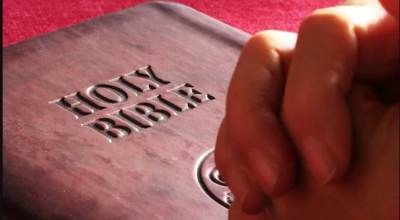Easter: Something more than lip service
Published 6:24 pm Thursday, April 18, 2019
“Jesus was a Capricorn; he ate organic food.
He believed in love and peace and never wore no shoes.”—Quoted lyrics by Kris Kristofferson
Easter is Sunday morning.
Sunday morning the Easter Bunny will make his annual appearance in front yards, weather and flood waters permitting, and if living rooms if not.
Sunday morning will mark the virgin appearances of Easter dresses and new spring suits and the once a year appearances at churches of many on their congregational rolls.
“Long hair, beard and sandals and a funky bunch of friends.
Reckon we’d just nail him up if he came down again.”
But more importantly, Sunday morning will also mark the Christian faith’s celebration of its most central tenet — of what it holds as the most significant occurrence in the collective histories of all those who now or have ever inhabited the planet Earth.
Easter Sunday will be a joyous one for the true believers, a sort of perversely joyous one for the atheists who reject that belief and a confusingly troubling one for the agnostics residing in their no-man’s-land of doubt that asks if such a thing could even be known.
And ultimately, it is that matter of choice which is the central tenet of the Christian faith and the essence of Easter.
“Eggheads fussin’, rednecks cussin’ hippies for their hair.
Others laugh at straights who laugh at freaks who laugh at squares.”
It is simple as tenets go. It is both remarkable and overwhelming within that simplicity, and as fundamentally inherent as a young child’s recitation of its most sacred words: “For God so loved the world…”
It is a tenet manifested within the life of a man who yet, was not a man, of a man who died, and yet, did not. It is a tenet whose symbolic representation of life is one of death and whose storyline is that of self-servitude transformed by self-sacrifice.
It is a story whose plot is preposterous by virtually all standards, save its own.
It is melodrama, it is mega-epic. It is the most amazingly brazen account of any event at any time before or since.
And, most humanly, far too many who claim to embrace it, don’t live it.
“Cause everybody’s gotta have somebody to look down on,
Prove they can be better than at any time they choose.
Someone doin’ something dirty decent folks can frown on.
If you can’t find nobody else, then help yourself to me.”
And yet, it is believed. For millions of Christians it has what no less a thinker than the English philosopher and man of letters C.S. Lewis, whose little treatise “Mere Christianity,” lays out a case for the faith better than most, calls “that ring of truth which real things do.”
For even the non-believer, it is not without its attractions. For it is not the story of a man, but rather the story of what Man might be. It is the ultimate of all things ultimate — of sacrifice, of hope, of peace, or reason for things unreasonable, of love.
And the man that faith holds to be the son of God himself, said that the greatest of these is love.
As millions gather in Christian places of worship Sunday morning, it will be suggested that the day is one of celebration and awe at this most complex of all simplicities — that the divine was made manifest so that the world might aspire to be divine.
One translation of the word “amen” is “may it be so.”
Amen.
“Some folks hate the Whites who hate the Blacks who hate the Klan.
Most of us hate anything that we don’t understand.”
Ray Mosby is editor and publisher of the Deer Creek Pilot in Rolling Fork.





